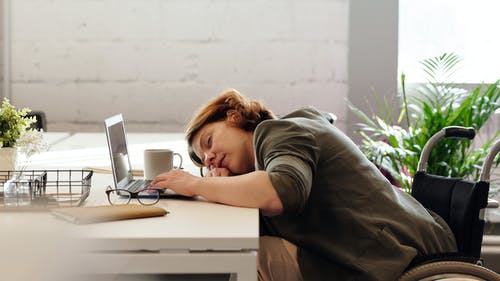OnePoll conducted a survey on behalf of Intellibed for National Sleep Comfort Month that looked into the sleep challenges of 2000 Americans. The researchers found that the cut-off point for quality sleep is before 3 am. Many of the participants did not sleep past that.
While looking into the night-time habits of the participants, the researchers found that many of them struggled with getting enough rest. The average participants seemed to have trouble falling asleep about three nights every week.
Reasons Americans had difficulty sleeping
When the respondents went to bed, they took about twenty-six minutes to fall asleep. Most of them got about six hours and twenty-three minutes of sleep each night.
The respondents blame their inability to fall asleep on workplace stress (30%), lack of fatigue (32%), insomnia (32%), being too hot (35%), and personal worries (45%). As a result, they were unable to get eight hours of sleep.
Sharing a bed posed some challenges to several participants. For example, 56% of the people who slept with a partner had different preferences regarding their mattresses. About 31% of them ended up sleeping on a bed their partner liked.
The respondents suffered effects from sleeping poorly. Most respondents said low-quality sleep affected how they performed at work or social life about two days each week.
Researchers looked into healthy sleeping habits
Researchers looked into the participants sleeping patterns and their sleep quality. They found that respondents who slept naked (53%) were more likely to sleep better than those who slept in pajamas (27%). Moreover, people who slept in a warm room (46%) slept better than those in a cold room (23%).
According to the CEO of Intellibed, Colin House, many reasons keep people from falling asleep. Unfortunately, there are too many products such as noise machines and weighted blankets that promise a good sleep. However, these products do little to help with the actual issue. House states that a good mattress often remedies poor sleep.
The researchers also found that those who slept in warm rooms took more naps (three per week) than those in cold rooms (twice a week).


